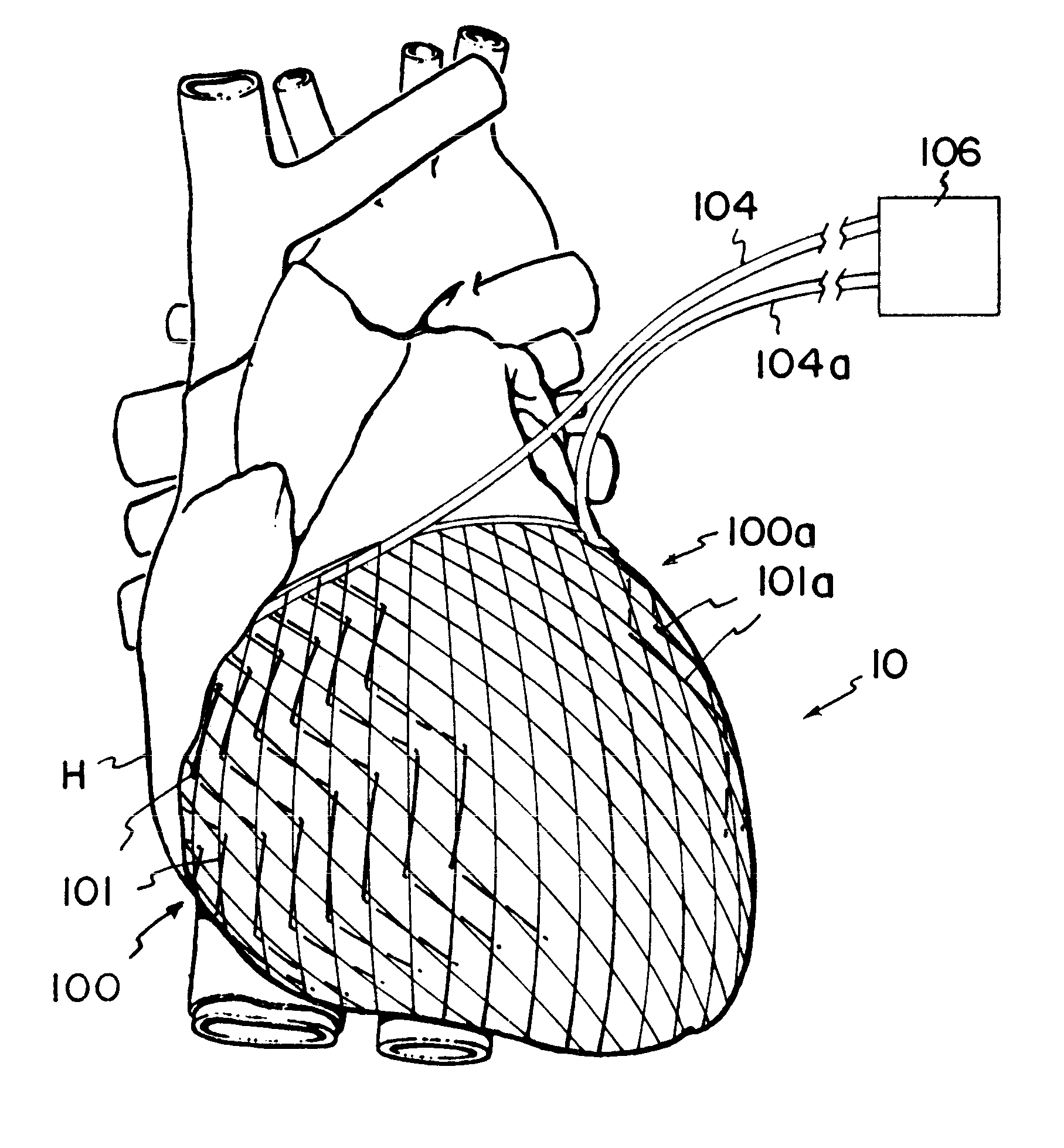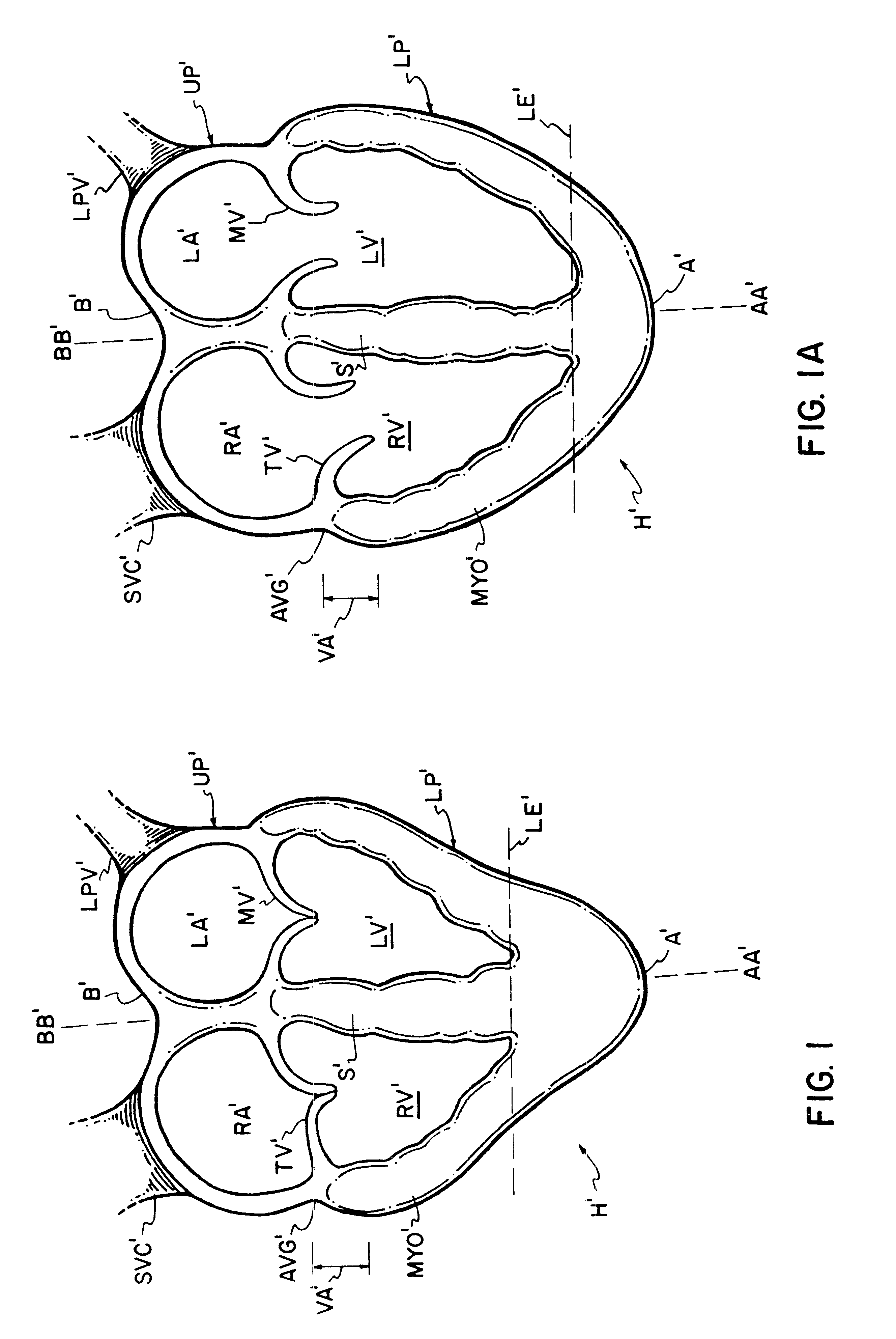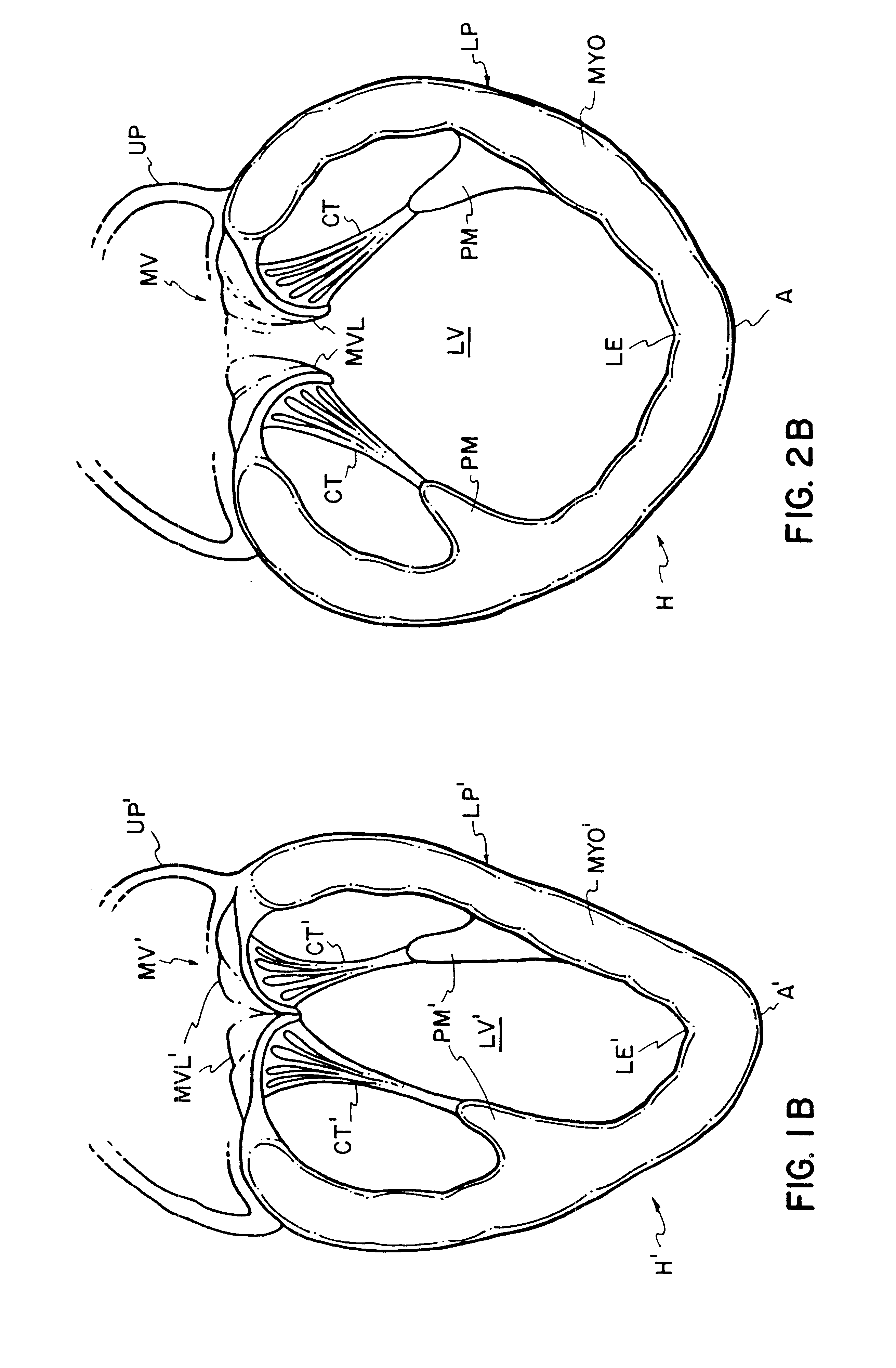Defibrillating cardiac constraint
a cardiac constraint and defibrillator technology, applied in the field of defibrillating cardiac constraint, can solve the problems of fatigue of the afflicted patient, inability to perform even simple exerting tasks, pain and discomfort, and the heart becomes so large that the heart cannot adequately supply blood
- Summary
- Abstract
- Description
- Claims
- Application Information
AI Technical Summary
Benefits of technology
Problems solved by technology
Method used
Image
Examples
Embodiment Construction
A. Congestive Heart Failure
To facilitate a better understanding of the present invention, description will first be made of a cardiac constraint device such as is more fully described in commonly assigned and copending U.S. patent application Ser. No. 09 / 114,757 filed Jul. 13, 1998. In the drawings, similar elements are labeled similarly throughout.
With initial reference to FIGS. 1 and 1A, a normal, healthy human heart H' is schematically shown in cross-section and will now be described in order to facilitate an understanding of the present invention. In FIG. 1, the heart H' is shown during systole (i.e., high left ventricular pressure). In FIG. 1A, the heart H' is shown during diastole (i.e., low left ventricular pressure).
The heart H' is a muscle having an outer wall or myocardium MYO' and an internal wall or septum S'. The myocardium MYO' and septum S' define four internal heart chambers including a right atrium RA', a left atrium LA', a right ventricle RV' and a left ventricle L...
PUM
 Login to View More
Login to View More Abstract
Description
Claims
Application Information
 Login to View More
Login to View More - R&D
- Intellectual Property
- Life Sciences
- Materials
- Tech Scout
- Unparalleled Data Quality
- Higher Quality Content
- 60% Fewer Hallucinations
Browse by: Latest US Patents, China's latest patents, Technical Efficacy Thesaurus, Application Domain, Technology Topic, Popular Technical Reports.
© 2025 PatSnap. All rights reserved.Legal|Privacy policy|Modern Slavery Act Transparency Statement|Sitemap|About US| Contact US: help@patsnap.com



